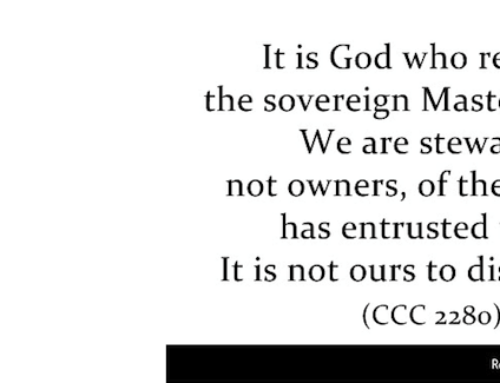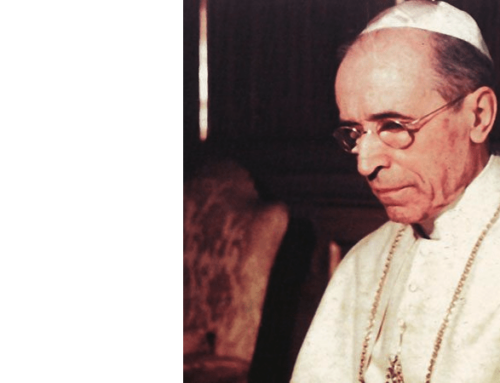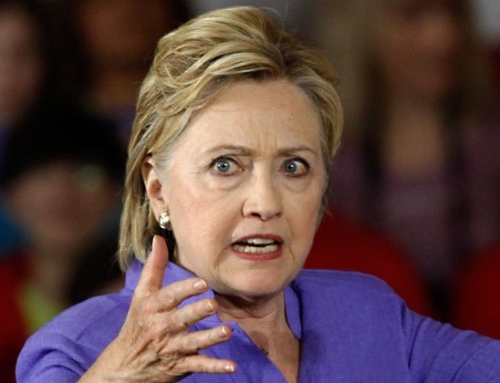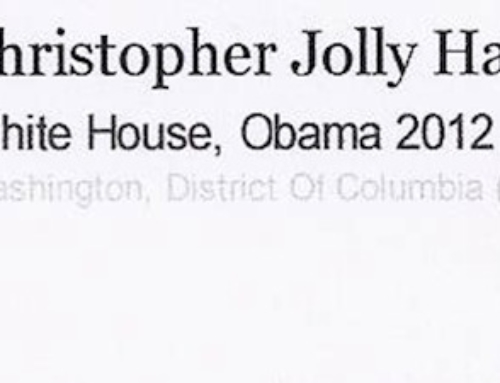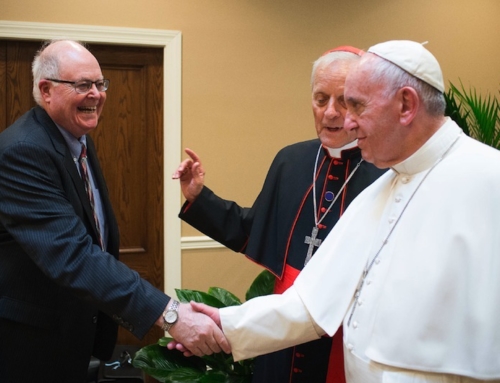by Sister Margherita Marchione, Ph.D.
(Catalyst, 6/2006)
Recently, a Jewish group invited me to speak. When I mentioned that my topic would be Pope Pius XII, I was informed that it would not suit their needs: “My chairman thought it would open up the wounds of a few holocaust survivors in our group who lost mothers, fathers, sisters and brothers in the gas chambers. We have a few, not many, who escaped from Germany. They still are angry that the Catholic Church did not condemn Adolf Hitler.” Although this is not true, many Jewish organizations continue to state that “the Catholic Church did not condemn” the Nazi leader.
From England, Israel and the USA, three Jewish historians have refuted this distorted portrayal of world history: Martin Gilbert, Michael Tagliacozzo, and David Dalin. All three have taken issue with Daniel Goldhagen, John Cornwell, James Carroll and other writers of the past century.
As I pointed out in my own books during the past decade, why would German leaders state: “The Pope has repudiated the National Socialist New European Order… and makes himself the mouthpiece of the Jewish war criminals.” When Pius XII learned about the Nazi round-up on October 16, 1943, why did he immediately send an official, personal protest through the papal Secretary of State Cardinal Luigi Maglione to German Ambassador Ernst von Weizsäcker? This protest was published in the Vatican’s official “Actes.” Why did the Pope provide false identification papers to potential victims? Why did he order Vatican buildings, churches, convents and monasteries to open their doors and find hiding places for Jews and other refugees? Why would Israeli Foreign Minister Golda Meir state: “When fearful martyrdom came to our people in the decade of Nazi terror, the voice of the Pope was raised for the victims.” Albert Einstein stated. “Only the Church stood squarely across the path of Hitler’s campaign for suppressing the truth.” (Time Magazine, 1940)
How long will honest scholars condone statements by those who defame Pope Pius XII? Today even hardened detractors of Pius XII generally consider that, throughout the Second World War, the pope was hailed as a towering moral hero in the face of cataclysmic terror: a man solicitous on behalf of Jews and Gentiles alike who worked tirelessly for peace. Through diplomacy, personal contact with Heads of State, and the underground railroad, he protected the Jews and other victims of the Nazis in a way that no other leader with mighty war weapons could provide. His charity and love prevailed.
No Pope throughout history did more than Pope John Paul II to create closer relations with the Jewish community, to oppose anti-Semitism, and to make certain that the evils of the Holocaust never occur again. Relations between the Catholic Church and Jewish people are marked by mutual respect and understanding. Pope John Paul II visited the Chief Rabbi at the Synagogue in Rome in 1986 and declared that “the Jews are our dearly beloved brothers,” and indeed “our elder brothers in faith.” He established full diplomatic relations between the Holy See and the State of Israel. A survivor of both Nazi and Communist oppression himself, John Paul II has consistently praised Pope Pius XII for his heroic leadership during World War II, and led the cause for his canonization. His successor, Benedict XVI, has followed in his footsteps.
During the early part of the nineteenth century, pogroms were going on in Poland. On December 30, 1915, the American Jewish Committee appealed to Pope Benedict XV to use his moral influence and speak out against anti-Semitism. Eugenio Pacelli, who was working in the Vatican Secretariate of State, was deeply involved in the preparation of a pro-Jewish document signed by Vatican Secretary of State Cardinal Gasparri (February 9, 1916). This statement appeared in the New York Times, April 17, 1916 under the headline: “Papal Bull Urges Equality for Jews.” It was printed in Civiltà Cattolica, April 28, 1916, v. 2, pp. 358-359, and in The Tablet, April 29, 1916 v. 127, p. 565.
Twenty years later, during his 1936 visit to America, Cardinal Pacelli met with two officials of the American Jewish Committee, Lewis Strauss and Joseph Proskauer, and re-affirmed Benedict XV’s condemnation of anti-Semitism, promising to make its teaching better known. These facts are found in the archives of the American Jewish Committee, and are documented by Naomi Cohen, in her official history of the AJC, Not Free to Desist: A History of the American Jewish Committee, 1906-1966, The Jewish Publication Society of America (Philadelphia, 1972, pp. 180, 214-215, 578, section vii).
Pius XII was sympathetic to Zionism and the creation of a Jewish state, both before and after he was Pontiff, as a number of works have shown: Three Popes and the Jews by Pinchas Lapide (1967); The Papacy and the Middle East (1986); andChristian Attitudes Toward the State of Israel by Paul Charles Merkley (2002). (The last fifty years of conflict in the region seem to confirm Pius XII’s fears of ethnic resentments and hatreds.) On July 30, 1944, Pius XII told the newly-appointed high commissioner for Palestine “of his intention not to interfere with the Jewish aspiration to create a national State in Palestine, saying that he was animated with great sympathy for the Jews.” (The Tablet of London, Oct. 25, 1958.) And in 1945, during a meeting with Jewish survivors of the Holocaust, Pius XII told his Jewish audience approvingly: “Soon, you will have a Jewish state.” (The Jerusalem Post, October 10, 1958)
Recent followers of the anti-Pius XII myth, Susan Zuccotti (Under His Very Windows), Michael Phayer (The Catholic Church and the Holocaust) and David Kertzer (The Popes Against the Jews) make no mention of compelling documents that vindicate Pope Pius XII. The evidence in Actes et Documents (Libreria Editrice Vaticana) points to Pius XII’s ceaseless activities for Peace. He was against Racism, Nationalism, Anti-Semitism and War. His efforts were on behalf of the persecuted: Jews, the homeless, widows, orphans, prisoners of war. It is important to note: 1. The Holy See’s February 9, 1916 condemnation of anti-Semitism, which Eugenio Pacelli (the future Pius XII), then working in the Secretary of State’s office, helped formulate. 2. The January 22, 1943 report written by the Nazi’s Reich Central Security Office, which condemned Pius XII’s 1942 Christmas Address for “clearly speaking on behalf of the Jews” and which accused the Pontiff of being a “mouthpiece of the Jewish War Criminals.” 3. The Nazi plan, reported in the July 5, 1998 issue of the Milan newspaper Il Giornale, which described Hilter’s plan to “massacre Pius XII with the entire Vatican,” because of the “Papal protest in favor of the Jews.”
One wonders why the New York Times heralds books that cast Pope Pius as a racist and hypocrite. Compare New York Times book reviews, editorials and news articles that question Pope Pius’s respected reputation with New York Times articles and editorials that praised Pius’ efforts on behalf of the Jews? Why not cite the 1943 New York Times editorial? “…This Christmas more than ever, the Pope is a lonely voice crying out of the silence of a continent.” Pope Pius XII was widely admired. If his voice of moral authority can be taken out of the social ratio, the media’s voice is empowered.
Testimonials abound. In 1985, Cardinal Pietro Palazzini was honored by Israel’s Yad Vashem as a “Righteous Gentile.” He explicitly stated that Pius XII ordered him to save Jews. I interviewed him in 1995. His testimony is also clearly expressed in his memoirs.: “Amidst the clash of arms, a voice could be heard—the voice of Pius XII. The assistance given to so many people could not have been possible without his moral support, which was much more than quiet consent”(Il clero e l’occupazione di Roma, 1995).
Maurizio Zarfati, a resident in Acco, Hativath Golani St., 25/21 wrote December 7, 1994, that he was saved with his parents, brother and sister in the monastery of the Augustinian Oblates of Santa Maria dei Sette Dolori in via Garibaldi. To permit men to enter, the Holy Father exempted them from rules of cloister. The Sisters gave up their rooms and moved to restricted quarters. … There were 103 Jews.
Soldier Eliyahu Lubisky, a member of the “Kibuz Beth Alpha,” wrote on August 4, 1944, in the weekly “Hashavua,” N. 178/42, that “he found more than 10,000 Jews in Rome. The refugees praised the Vatican for their help. Priests endangered their lives to save the Jews. The Pope himself participated in this work of saving Jews.”
Regarding the German occupation of Rome, Michael Tagliacozzo’s letter to the daily newspaper “Davàr” (Tel Aviv, April 23, 1985), states: “Little known is the precious help of the Holy See. On the recommendation of Pius XII the religious of every order did their best to save Jews. In great numbers, especially the elderly, women and children were welcomed in the convents that opened their doors offering refuge and assistance. Children in orphanges were sent to monasteries. Even in the Vatican, almost under the Pope’s windows, Jews found refuge hiding from the clutches of the Gestapo. The figures show that about five thousand were hiding in ecclesiastical institutions (4238 in convents, parishes and other institutions, while 477 were living in the extraterritorial buildings protected by the Holy See).
The Pope’s peace efforts, his denunciation of Nazism, his defense of the Jewish people, have been clearly documented. U.S. Army Chaplain Morris Kertzer addressed four thousand Italian Jews in the Rome synagogue and subsequently sent a report to the United States (June 9, 1944). Who can dismiss the personal testimonials by Jewish chaplains? Rabbi André Zaoui expressed gratitude “for the immense good and incomparable charity that Your Holiness extended generously to the Jews of Italy and especially the children, women and elderly of the community of Rome (June 22, 1944).” Jewish military chaplains have confirmed that Catholics in Italy, inspired by papal instruction, did much to rescue and shelter the Jewish victims of Nazi persecution, even providing false passports for them. Rabbi David de Sola Pool, chairman of the National Jewish Welfare Board wrote to the Pope: “We have received reports from our army chaplains in Italy of the aid and protection given… From the bottom of our hearts we send you the assurances of undying gratitude.”
Recently Rabbi David Dalin stated that “to deny the legitimacy of the collective gratitude of Jews to Pius XII is tantamount to denying their memory and experience of the Holocaust itself, as well as to denying the credibility of their personal testimony and judgment about the Pope’s role in rescuing hundreds of thousands of Jews from certain death at the hands of the Nazis.”
It is very significant that Pope Pius XII had the nearly unanimous praise of all his contemporaries, a fact mostly ignored by his detractors. Most importantly, not one of the charges against him holds up under careful analysis. He does not appeal to modern sensibilities largely because he was always teaching the Gospel and Catholic doctrine to a world deafened by nationalism and the drums of war. There is absolutely no evidence that Pope Pius XII did anything wrong or stupid; there is overwhelming evidence that he did virtually everything right, and that he acted only after the most careful and penetrating analysis of every possibility and after fervent prayer.
Testimonials of survivors of the Holocaust also make it perfectly clear that the Pope was not anti-Semitic or indifferent to the fate of the Jews and that he did everything possible to help them. In a letter to me, dated June 18, 1997, historian and Holocaust survivor, Michael Tagliacozzo, clearly expressed his sentiments: “In my study of the conditions of the Jews (The Roman Community during the Nightmare of the Swastika,November 1963), I pointed out the generous and vast activity of the Church in favor of the victims. I learned how great was Pope Pacelli’s paternal solicitude. No honest person can discount his merits …. Pacelli was the only one who intervened to impede the deportation of Jews on October 16, 1943, and he did very much to hide and save thousands of us. It was no small matter that he ordered the opening of cloistered convents. Without him, many of our own would not be alive.”
Again, August 8, 2004, he reiterated his convictions: “Any apology on the actions of Pius XII must be considered superfluous. This is clear to all men of good will and is entrusted above all to the memory of those Jews, now living, who have not forgotten the efforts and solicitude of Pope Pacelli…. One must add the countless expressions of gratitude of those whose lives were saved in the religious houses in Rome, Assisi and elsewhere. Even if gratitude was expressed directly to the Institutions who protected them, the merit goes to Pope Pacelli who, on October 16, 1943, gave orders to open the doors of the parishes, convents and monasteries to save the Jews from deportation.”
Albert Einstein concluded in Time Magazine (December 23, 1940): “Only the Church stood squarely across the path of Hitler’s campaign for suppressing the truth.” There are expressions of gratitude, on the part of Jewish chaplains and Holocaust survivors, who give witness to the assistance and compassion of the Pope for the Jews before, during and after the Holocaust. Among countless other Jewish authorities, Pius XII received praise from Moshe Sharett, Israeli Chief Rabbi Isaac Herzog, and Pinchas Lapide.
On April 7, 1944, Chief Rabbi Alexander Safran, of Bucharest, Rumania, presented the following statement to Monsignor Andrea Cassulo, Papal Nuncio to Rumania: “In the most difficult hours which we Jews of Rumania have passed through, the generous assistance of the Holy See was decisive and salutary. It is not easy for us to find the right words to express the warmth and consolation we experience because of the concern of the Supreme Pontiff who offered a large sum to relieve the sufferings of deported Jews ¾sufferings which had been pointed out to him by you after your visit to Transnistria. The Jews of Rumania will never forget these facts of historic importance.”
An American newspaper carried the story of the Thanksgiving service in Rome’s Jewish Temple that was heard on the radio (July 30, 1944). The Jewish chaplain of the Fifth American Army gave a discourse in which, among other things, he said: “If it had not been for the truly substantial assistance and the help given to Jews by the Vatican and by Rome’s ecclesiastical authorities, hundreds of refugees and thousands of Jewish refugees would have undoubtedly perished before Rome was liberated.” (L’Osservatore Romano, July 30, 1944).
In the summer of 1945, a petition was presented to Pope Pius XII by twenty thousand Jewish refugees from Central Europe: “Allow us to ask the great honor of being able to thank, personally, His Holiness for the generosity he has shown us when we were being persecuted during the terrible period of Nazi-Fascism.”
At the end of World War II, Dr. Joseph Nathan, representing the Hebrew Commission, addressed the Jewish community, expressing heartfelt gratitude to those who protected and saved Jews during the Nazi-Fascist persecutions. “Above all,” he stated, “we acknowledge the Supreme Pontiff and the religious men and women who, executing the directives of the Holy Father, recognized the persecuted as their brothers and, with great abnegation, hastened to help them, disregarding the terrible dangers to which they were exposed.” (L’Osservatore Romano, September 8, 1945).
Reuben Resnick, American Director of the Committee to Help Jews in Italy, declared that “all the members of the Catholic hierarchy in Italy, from Cardinals to Priests, saved the lives of thousands of Jews, men, women, and children who were hosted and hidden in convents, churches, and other religious institutions” (L’Osservatore Romano, January 5, 1946).
On April 5, 1946, the Italian Jewish community sent the following message to His Holiness, Pius XII: “The delegates of the Congress of the Italian Jewish Communities, held in Rome for the first time after the Liberation, feel that it is imperative to extend reverent homage to Your Holiness, and to express the most profound gratitude that animates all Jews for your fraternal humanity toward them during the years of persecution when their lives were endangered by Nazi-Fascist barbarism. Many times priests suffered imprisonment and were sent to concentration camps, and offered their lives to assist Jews in every way. This demonstration of goodness and charity that still animates the just, has served to lessen the shame and torture and sadness that afflicted millions of human beings.” (L’Osservatore Romano, April 5, 1946).
There were many demonstrations of thanks and gratitude from the Jews saved through the assistance of Church institutions. Abramo Giacobbe Isaia Levi, a man of renowned intellect and a Senator of the Kingdom of Italy until the promulgation of the racial laws, was hidden in a convent during the Nazi occupation of Rome. He and his wife later converted to Christianity. He died in 1949 and, in his will, left a large sum of money to help elderly and impoverished Italian Jews. His beautiful estate in the center of Rome, Villa Levi, was renamed Villa Giorgina, in memory of his young daughter who died prematurely. In his will he donated it to Pope Pius XII because he had been “preserved from the dangers of evil racial persecution, overthrower of every relationship of human life” and was “grateful for the protection that was provided me in that turbulent period by the Sisters of the Infant Mary.”
Popes, Cardinals and Bishops have consistently praised Pope Pius XII for his heroic leadership, his peace-making efforts and his commitment as the defender and protector of the victims of war and hatred which drenched Europe in blood during World War II. He was a moral beacon to mankind. His voice was heard around the world. It was the “Voice” of a tireless world leader whose contribution to humanity during the Holocaust is incontrovertible. It is time for Catholics to refute the careless innuendoes and unfounded accusations that have been leveled against Pope Pius XII whose aspirations toward truth and goodness and his extraordinary World War II achievements are one of the great events of our times.
It is very significant that Pope Pius XII had the nearly unanimous praise of all his contemporaries, a fact mostly ignored by his detractors. Most importantly, not one of the charges against him holds up under careful analysis. He does not appeal to modern sensibilities largely because he was always teaching the Gospel and Catholic doctrine to a world deafened by nationalism and the drums of war. There is absolutely no evidence that Pope Pius XII did anything wrong or stupid; there is overwhelming evidence that he did virtually everything right, and that he acted only after the most careful and penetrating analysis of every possibility and after fervent prayer.
Testimonials of survivors of the Holocaust also make it perfectly clear that the Pope was not anti-Semitic or indifferent to the fate of the Jews and that he did everything possible to help them. In a letter to me, dated June 18, 1997, historian and Holocaust survivor, Michael Tagliacozzo, clearly expressed his sentiments: “In my study of the conditions of the Jews (The Roman Community during the Nightmare of the Swastika,November 1963), I pointed out the generous and vast activity of the Church in favor of the victims. I learned how great was Pope Pacelli’s paternal solicitude. No honest person can discount his merits …. Pacelli was the only one who intervened to impede the deportation of Jews on October 16, 1943, and he did very much to hide and save thousands of us. It was no small matter that he ordered the opening of cloistered convents. Without him, many of our own would not be alive.”
Again, August 8, 2004, Tagliacozzo reiterated his convictions: “Any apology on the actions of Pius XII must be considered superfluous. This is clear to all men of good will and is entrusted above all to the memory of those Jews, now living, who have not forgotten the efforts and solicitude of Pope Pacelli…. One must add the countless expressions of gratitude of those whose lives were saved in the religious houses in Rome, Assisi and elsewhere. Even if gratitude was expressed directly to the Institutions who protected them, the merit goes to Pope Pacelli who, on October 16, 1943, gave orders to open the doors of the parishes, convents and monasteries to save the Jews from deportation.”
Several years ago in an interview, Sir Martin Gilbert, perhaps the foremost contemporary Jewish historian, noted that “Christians were among the first victims of the Nazis and that the Churches took a very powerful stand. …” On the question of Pope Pius XII’s alleged silence, he stated, “So the test for Pacelli was when the Gestapo came to Rome in 1943 to round up Jews. And the Catholic Church, on his direct authority, immediately dispersed as many Jews as they could.” After years of research that began in 1959, Gilbert wrote Never Again: The History of the Holocaust that contains an extraordinary chapter on Pius XII’s humanitarianism. Here Gilbert thanks the Vatican for what was done to save Jewish lives. We owe this historian a debt of gratitude.
But how long will honest scholars condone statements by those who defame Pope Pius XII? Today even hardened detractors of Pius XII generally consider that, throughout the Second World War, the pope was hailed as a towering moral hero in the face of cataclysmic terror: a man solicitous on behalf of Jews and Gentiles alike who worked tirelessly for peace. His charity and love prevailed. Through diplomacy, personal contact with Heads of State, and the underground railroad, he protected the Jews and other victims of the Nazis in a way that no other leader with mighty war weapons could provide.
Marc Saperstein, professor of Jewish history and director of the program in Judaic studies at George Washington University, clearly stated in an article, “A Medieval and a Modern Pope” (The Washington Post, April 1, 1998): “The suggestion that Christian doctrines or practice led directly to the Nazi death camps is misleading and inappropriate. … There were limits to the capacity of the Pope and the Roman Catholic Church to prevent a world power with military domination over a continent, from murdering the civilians it defined as its enemies. The fundamental responsibility for the Holocaust lies with the Nazi perpetrators. Not with Pope Pius XII. Not with the church. Not with the teachings of the Christian faith.”
One of the evils that has enveloped the media is the fact that recent smear campaigns, mounted by misguided Jews and misinformed Catholics, are being used in what is really an intra-Catholic argument about the direction of the Church today. At the same time, Pius XII has unjustly come under attack by the opposition and a great deal of misinformation about this pontiff is being circulated. Books, articles and media reports have leveled sweeping attacks while clearly overlooking historical sources and factors. If he had denounced Adolf Hitler more explicitly, the Nazis would have responded with even more ferocity. Personally and through his representatives, Pius XII employed all the means at his disposal to save Jews and other refugees during World War II. As a moral leader and a diplomat forced to limit his words, he privately took action and, despite insurmountable obstacles, saved hundreds of thousands of Jews from the gas chambers. The Pope was loved and respected. Of those mourning his death in 1958, Jews—who credited Pius XII with being one of their greatest defenders and benefactors in their hour of greatest need—stood in the forefront.
In the 60 plus years since World War II, overwhelming numbers of the Jewish Community have heaped thanks and praise on Pope Pius XII for his concern and assistance to the Jews in their difficult years. His supporters include, but are not limited to this list: Chief Rabbi Alexander Safran, of Bucharest, Rumania, The Jewish Advocate in Boston, Jewish chaplain of the Fifth American Army, Dr. Joseph Nathan, representing the Hebrew Commission, Reuben Resnick, American Director of the Committee to Help Jews in Italy, Abramo Giacobbe Isaia Levi, Senator of the Kingdom of Italy, Jewish scholar Jenö Levai, Moshe Sharett, Israeli Chief Rabbi Isaac Herzog, Jewish scholar Pinchas E. Lapide, Albert Einstein, U.S. Army Chaplain Morris Kertzer, Rabbi André Zaoui, Rabbi David de Sola Pool, chairman of the National Jewish Welfare Board, Jewish historian and scholar Richard Breitman, Jan Hermann and Dr. Max Pereles, from the Ferramonti-Tarsia detention camp, Marc Saperstein, professor of Jewish history and director of the program in Judaic studies at George Washington University.
In particular, one must also remember that in the summer of 1945, twenty thousand Jewish refugees from Central Europe presented the following petition to Pope Pius XII: “Allow us to ask the great honor of being able to thank, personally, His Holiness for the generosity he has shown us when we were being persecuted during the terrible period of Nazi-Fascism.”
Recently, three Jews have come to the defense of Pius XII: Rabbi David Dalin, professor of history at Ave Maria University; Historian Sir Martin Gilbert whose books have contributed immensely to the history of the Holocaust; Michael Tagliacozzo, historian and Holocaust survivor. Perhaps the greatest testimony was Hitler himself who consistently complained that Pope Pius XII was “a mouthpiece of the Jewish war criminals.”
The truth of the matter is that Pope Pius XII condemned Hitler and protested more than 60 times. Politically the pope could do nothing; however, in a humanitarian effort to save the lives of Jews and other victims of Nazism, he did more than any other world leader!
Margherita Marchione, PhD, author of: Yours Is a Precious Witness: Memoirs of Jews and Catholics in Wartime Italy (1997); Pius XII: Architect for Peace (2000); Consensus and Controversy: Defending Pius XII (2002); Shepherd of Souls: A Pictorial Life of Pius XII (2002) and Man of Peace (2003) Paulist Press. Also, The Fighting Nun: My Story(Cornwell Books, New York/London, 2000), Pope Pius XII (Ancora Press, Milan, 2003) and Bilingual Italian-English and Spanish-English Coloring Books. Crusade of Charity: Pius XII and POWs. Tel. 973-538-2886, Ext. 116 / E-mail Sr.Margherita.Marchione@ATT.NET].


